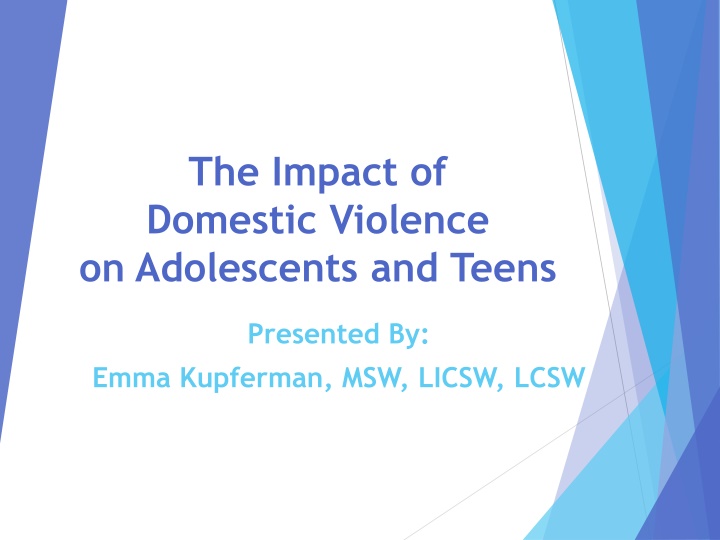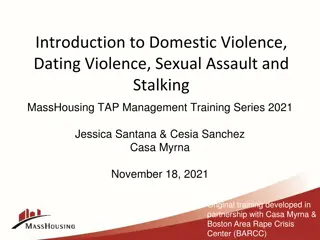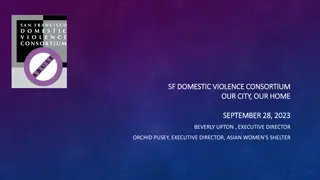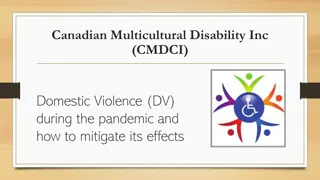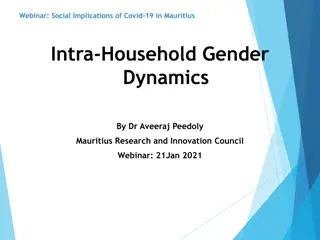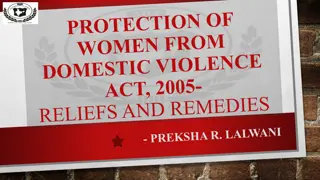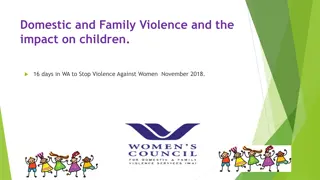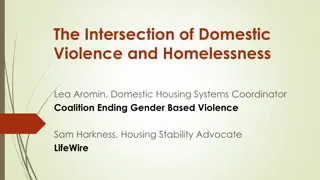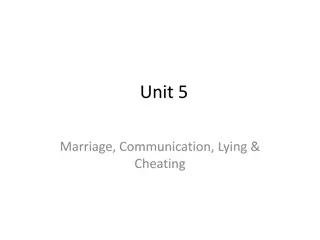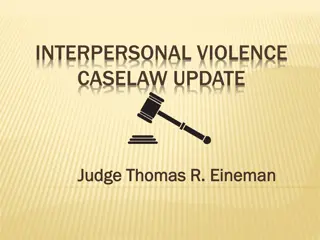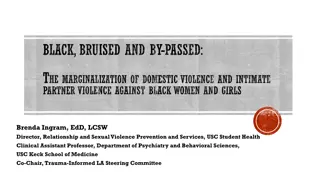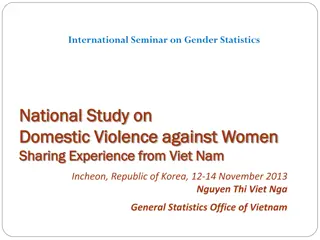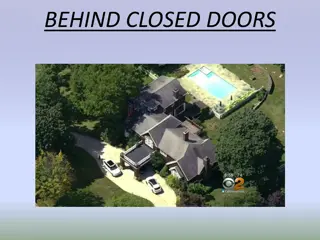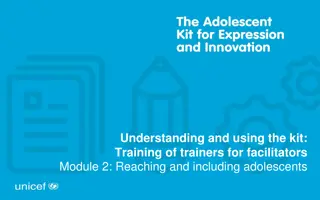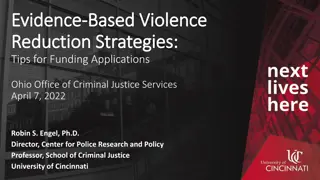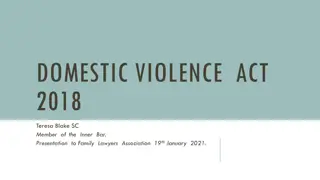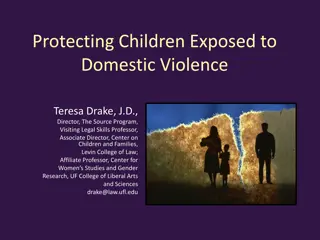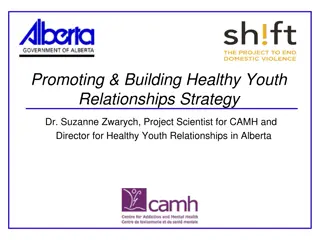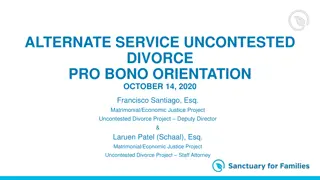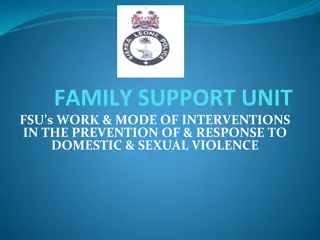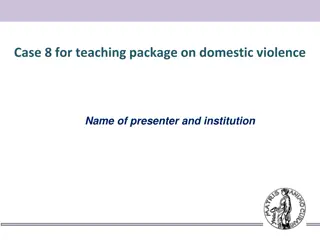Impact of Domestic Violence on Adolescents: Understanding the Devastating Effects
Exploring the profound repercussions of domestic violence on adolescents and teens, this presentation highlights the detrimental impact on typical child development, the development of toxic stress, and the subsequent challenges in building self-autonomy, family roles, peer relationships, and intimacy skills. It sheds light on the complexities young individuals face when exposed to such trauma, emphasizing the urgent need for support and intervention to mitigate long-term consequences.
Download Presentation

Please find below an Image/Link to download the presentation.
The content on the website is provided AS IS for your information and personal use only. It may not be sold, licensed, or shared on other websites without obtaining consent from the author.If you encounter any issues during the download, it is possible that the publisher has removed the file from their server.
You are allowed to download the files provided on this website for personal or commercial use, subject to the condition that they are used lawfully. All files are the property of their respective owners.
The content on the website is provided AS IS for your information and personal use only. It may not be sold, licensed, or shared on other websites without obtaining consent from the author.
E N D
Presentation Transcript
The Impact of Domestic Violence on Adolescents and Teens Presented By: Emma Kupferman, MSW, LICSW, LCSW
Typical Child Development Discussion of typical child development shared thus far Developmental tasks build on one another, typical tasks of teen years very difficult when impacted by previous experiences of domestic violence Impact of DV (trauma) continues to build, becoming more intense with more serious consequences for the young person as they age.
Impact of Toxic Stress Learning how to cope with adversity is an important part of healthy development. toxic stress is the strong, unrelieved activation of the body s stress management system in the absence of protective adult support. Without caring adults to buffer children, the unrelenting stress caused by extreme poverty, neglect, abuse, or severe maternal depression can weaken the architecture of the developing brain, with long-term consequences for learning, behavior, and both physical and mental health. http://developingchild.harvard.edu/resources/multimedia /videos/three_core_concepts/toxic_stress/
Task: Increased Sense of Self and Autonomy From Family Accelerated responsibility and autonomy Taking on caretaker role toward parent/siblings including physical protection Premature independence including leaving home, becoming a parent, finding a new family (gangs etc.)
Task: Redefinition of Roles Within the Family Poorly developed skills such as respectful communication, self regulation and conflict resolution Intense parent-child conflicts that may result in serious injury
Task: Increased Peer Group Influence, Desire for Acceptance Shame, secrecy and insecurity beyond typical teen behavior High-Risk behaviors to impress and gain attention from peers Finding or creating new families Negative defensive (ex. Substance use) and offensive (ex. Aggression) strategies to avoid or cope with violence and stigma
Task: Building intimacy, sexuality and relationship skills Unhealthy relationships including controlling/violent dating relationships Fear of abusive intimate relationships causing lack of connection to others Avoiding interpersonal closeness Pregnancy to escape and create support system
Task:Increased capacity for abstract reasoning and broader worldview All or nothing rigid thinking Skewed expectations about the world, the safety and security of interpersonal relationships and sense of integrity Distrust of new experiences, learning and growing
Task: Increased Capacity to Control Behavior Lack of ability to measure and judge consequences for behavior Externalizing problems (ex aggression, exploitive behavior towards others) Conduct problems; oppositional or defiant behaviors particularly towards authority or those vulnerable to them
Recommendations Recognize the extreme impact of trauma on teen behavior, presentation, and emotions Consider developmental level of young person, they may be 16 but developmentally 11 Particularly consider the impact of domestic violence on the teen s ability to self-regulate Refer to trauma informed treatment including case management, therapy, residential programming etc. Support and services for teens AND parents to repair relationships and create safer homes
References http://www.safestartcenter.org/pdf/imp act-exposure-violence-on-dev.pdf Don t Hit My Mommy A Manual for Child- Parent Psychotherapy With Young Witnesses of Family Violence Lieberman, Alicia F., Van Horn, Patricia, 2005 Center on the Developing Child, Harvard University http://developingchild.harvard.edu/
Contact Information Emma Kupferman, MSW LICSW LCSW ekupfermanlicsw@gmail.com
